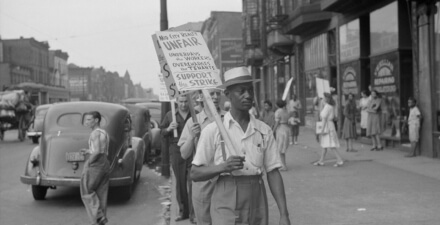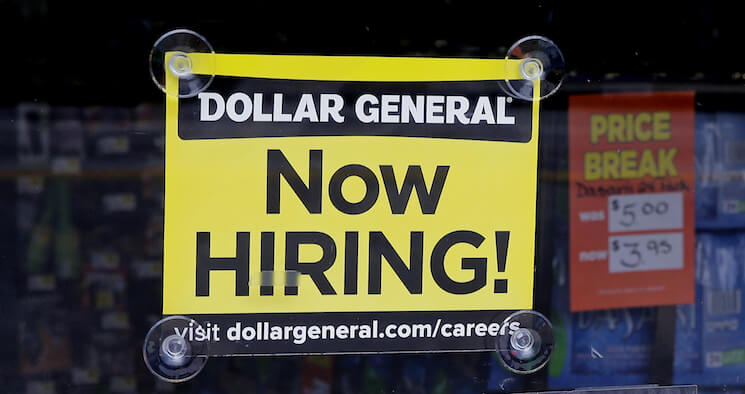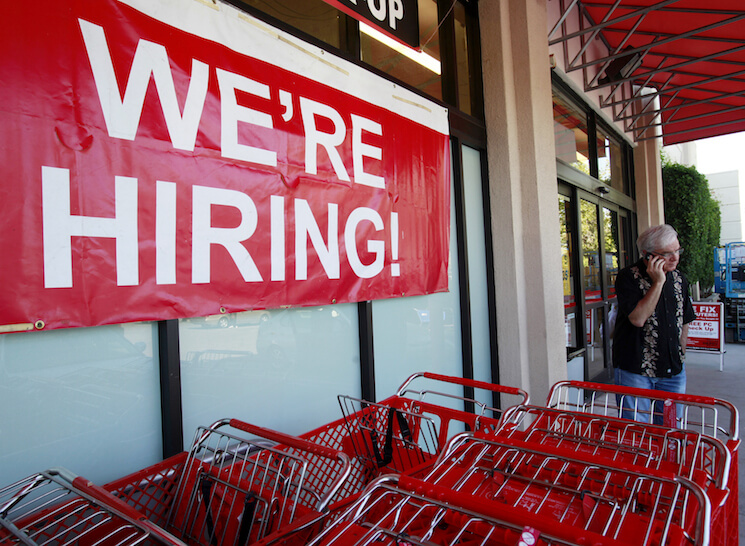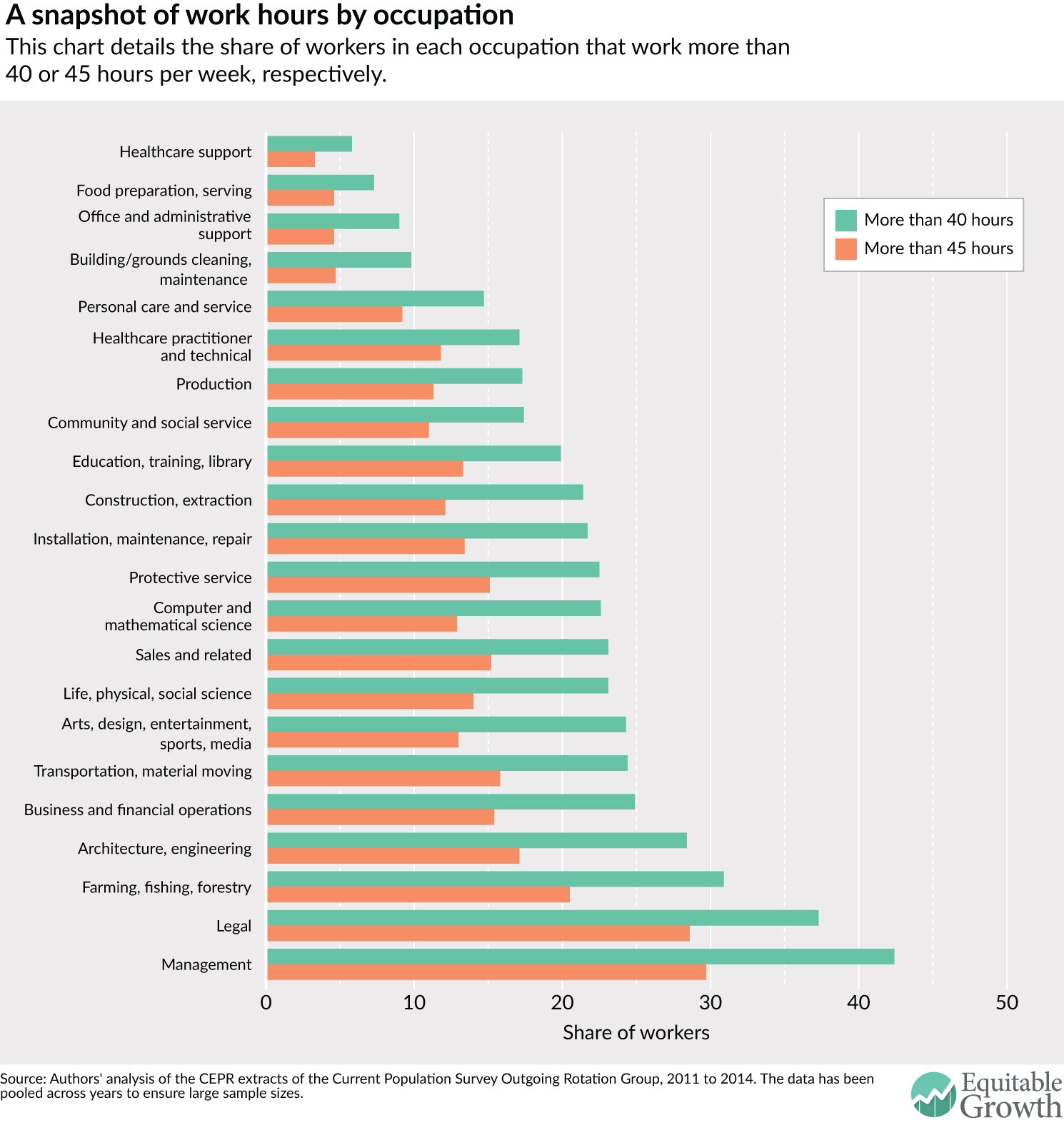Increasing evidence demonstrates the ways in which bargaining power shapes economic outcomes. One’s economic success is not merely defined by individual characteristics such as education. Equitable Growth’s work on unions and collective action in the United States examines the ways in which institutions intersect with economic trends and individual characteristics to ensure that workers can share in the gains of the economic growth to which they contribute.
Featured work
Will labor’s surging popularity result in new union members in the United States?
August 29, 2024
August 29, 2024
Unions in the United States improve worker safety and lower health inequality
December 13, 2022
December 13, 2022
Factsheet: How strong unions can restore workers’ bargaining power
May 1, 2020
May 1, 2020
Unions and the enforcement of labor rights: How organized labor protects U.S. workers against unfair and illegal employment practices
April 29, 2022
April 29, 2022
Aligning U.S. labor law with worker preferences for labor representation
February 18, 2020
February 18, 2020
Explore Content in Bargaining Power390
Just deserts? Earnings inequality and bargaining power in the U.S. economy
October 4, 2016
October 4, 2016
How intensely are U.S. employers looking for workers?
September 12, 2016
September 12, 2016
Working by the hour: The economic consequences of unpredictable scheduling practices
September 6, 2016
September 6, 2016
New analysis shows it is more difficult for workers to move up the income ladder
July 14, 2016
July 14, 2016
A graphical update on the latest data on the U.S. jobs market
July 13, 2016
July 13, 2016
Secular stagnation and inequality
July 11, 2016
July 11, 2016
Keeping workers off the ballot: Electoral gatekeepers and the shortage of candidates from the working class
July 5, 2016
July 5, 2016
The power of economic interests and the congressional economic policy agenda
July 5, 2016
July 5, 2016
Seminar Series: Student loans and the labor market (Invitation Only)
July 13, 2016 12:15PM - 1:30PM
Working mothers with infants and toddlers and the importance of family economic security
June 29, 2016
June 29, 2016
The open questions about the rise of U.S. job openings
June 13, 2016
June 13, 2016
Explore the Equitable Growth network of experts around the country and get answers to today's most pressing questions!















